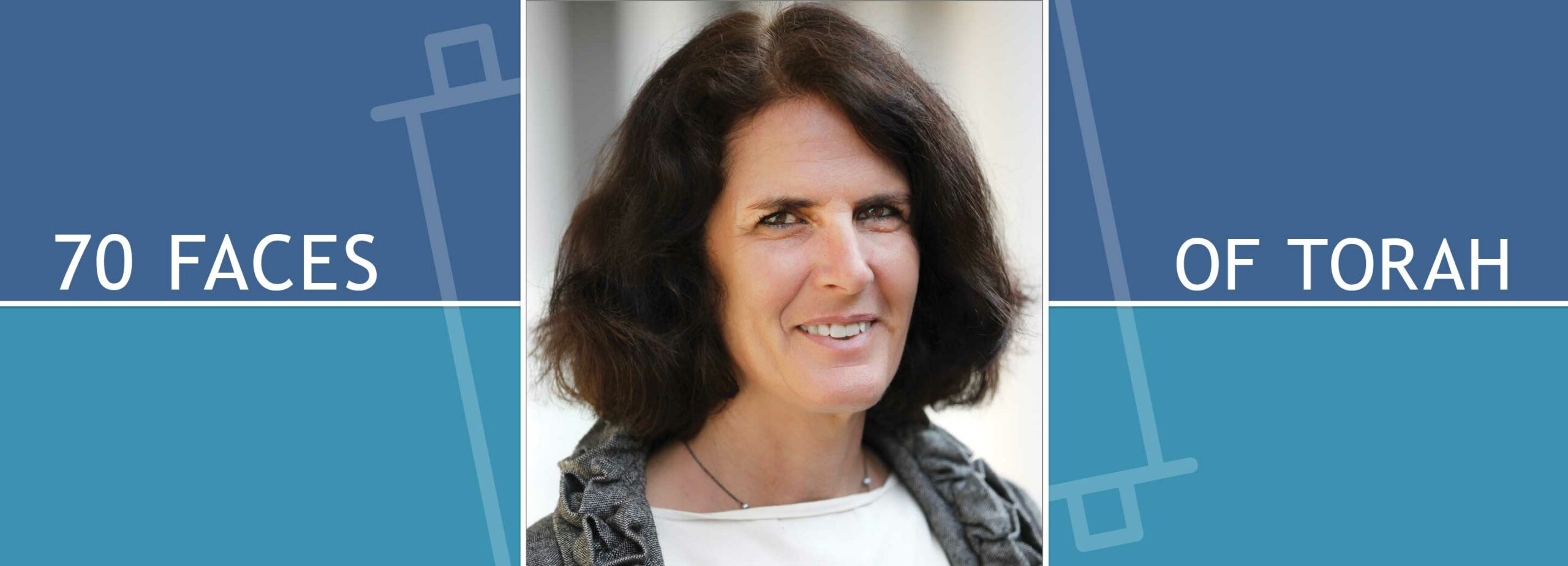Jewish learning Choose Life

Parashat Nitzavim-VaYelekh (Deuteronomy 29:9–31:30)
My father, Howard Adelman (z”l), passed away on July 23rd and was buried on Tisha be’Av. Though he was eighty five, and had lived a full, vigorous life, his death still came as a terrible shock to me for I thought he was immortal. He had survived so many near-misses in his life—from an attack of pericarditis when I first moved to Israel in the mid-‘80s, to a full cardiac arrest in March 2020 at the onset of the Covid pandemic. Each time, he rose from near death—a cat with nine lives.
But this time he could not evade the Angel of Death. He fell and hit his head and, with the anti-coagulants he was on, blood flooded his brain causing irreversible damage. He died eight days later. He was on Vancouver Island in British Columbia, while I was in Israel. Still, just before he passed away, I was able to convey these last words in a video recording, drawn from the lullaby that he used to sing to us as children: Swing low, sweet chariot, coming for to carry me home…
The moment of Death is the ultimate din, the harshest Day of Judgment.
I feel keenly the irreversibility of that day. Coming for to carry him home.
Rosh Hashanah and Yom Kippur are also called “the Day of Judgment” [Yom ha-Din]. How do we move into this period without feeling condemned to the irreversibility of judgment but, rather, open ourselves up to transformation?
My sister recently reminded me of another of my father’s favorite songs, “Oh Sinner Man,” also an African-American Spiritual. The first stanzas of the song go like this:
Oh, sinner man, where you gonna run to?
Oh, sinner man, where you gonna run to?
Oh, sinner man, where you gonna run to all on that day?
Run to the moon, “Moon, won’t you hide me?”
Run to the sea, “Sea, won’t you hide me?”
Run to the sun, “Sun, won’t you hide me all on that day?”
Lord said, “Sinner man, moon’ll be a bleeding”
Lord said, “Sinner man, sea’ll be a sinking”
Lord said, “Sinner man, sun’ll be a freezing all on that day”
Oh, sinner man, where you gonna run to?
Oh, sinner man, where you gonna run to?
Oh, sinner man, where you gonna run to all on that day?
The Sinner Man runs from judgment or from himself, looking to hide with the Moon, or the Sea, or the Sun. He even runs to the Lord to hide him. But there is no hiding on that day.
In this week’s Parashah we read about the subtlety of teshuvah (repentance):
Surely this commandment [ha-mitzvah ha-z’ot] that I command you today
it is not too extraordinary for you,
it is not too far away!
It is not in the heavens,
[for you] to say:
Who will go up for us to the heavens and get it for us
and have us hear it, that we may observe it?
And it is not across the sea,
[for you] to say:
Who will cross for us, across the sea, and get it for us
and have us hear it, that we may observe it?
Rather, near to you is the word, exceedingly,
in your mouth and in your heart, to observe it!
(Deut. 30:11-14, Everett Fox translation).
Most commentaries, including Rashi and at least one opinion in the Talmud (b. Eruvin 55a) consider “this commandment” or “instruction” [ha-mitzvah ha-z’ot] to be about the Law and teachings of the book of Deuteronomy. However, Ramban identifies the commandment [ha-mitzvah] as repentance or return [teshuvah]. God wants Israel to know that even in the depth of exile, return to God is “not too hard, not far off from you, but is rather ‘very close to you,’ such that you can do it at any time and in any place” (Ramban’s commentary to Deut. 30:11).
That is, one cannot run to the Moon or the Sea or the Sun—for the moon’ll be a bleeding, the sea’ll be a sinking, and the sun’ll be a freezing, “all on that day.” On the Day of Judgement or the Day of Death, there will be no escape. No hiding.
The obverse, as the Torah conveys, of that sense of the irreversibility of judgment, of death, is the possibility of self-transformation through return, teshuvah. It is not in the Heavens nor across the sea but in your mouth and in your heart to observe and to do.
My father knew something about fleeing the Presence of God, or, rather, of not being able to flee the Presence of God. He always felt keenly that facing God entailed facing one’s responsibilities in life. He would even confront God, adjuring Him not to abandon His people, and to live up to the responsibilities of the covenant. You see, his own father had run away like “Sinner Man,” abandoning his wife (my Bubby), with three young sons when my father was just eight years old.
In response, my father became an Uber-Dad, intensely present and involved in each and all of his six children’s lives. His teshuvah crossed over generations—committed not to repeat the sins of the father upon the children unto the third and fourth generation. His return to Torah and God came later in life, decades later. As he softened, so did his judgment of God.
The Torah presents the process of return as a choice:
See, I set before you today
life and good, and death and evil
(Deut. 30:15).
Ultimately, God wants us to choose life, to walk in the path of the good and of Torah, and not to flee, choosing the irreversibility of death or condemnation.
My father’s Hebrew name was Hayyim, meaning life. He was a vital force in so many people’s lives, a charismatic and brilliant man and a deeply loving father. In bodying forth his memory and the process of intergenerational return, I (as bat Hayyim, daughter of Life) wish to embrace the life force that he has been and continues to be for me.
So may his memory be a source of blessing, zikhrono barukh.
Share your feedback with the author.
Dr. Rabbi Rachel Adelman is Associate Professor of Hebrew Bible at Hebrew College, where she recently earned rabbinic ordination. She completed her Ph.D. at the Hebrew University of Jerusalem. Her doctoral dissertation, books, and academic articles center on rabbinic midrash and Tanakh, as well as gender. She is currently working on a new book, Daughters in Danger, from the Hebrew Bible to Modern Midrash. When she is not writing books, papers, or divrei Torah, it is poetry that flows from her pen.
Learn more about Hebrew College’s rabbinical and cantorial programs at Ta Sh’ma (Come & Hear), our November Open Houses (in-person & virtual options).


